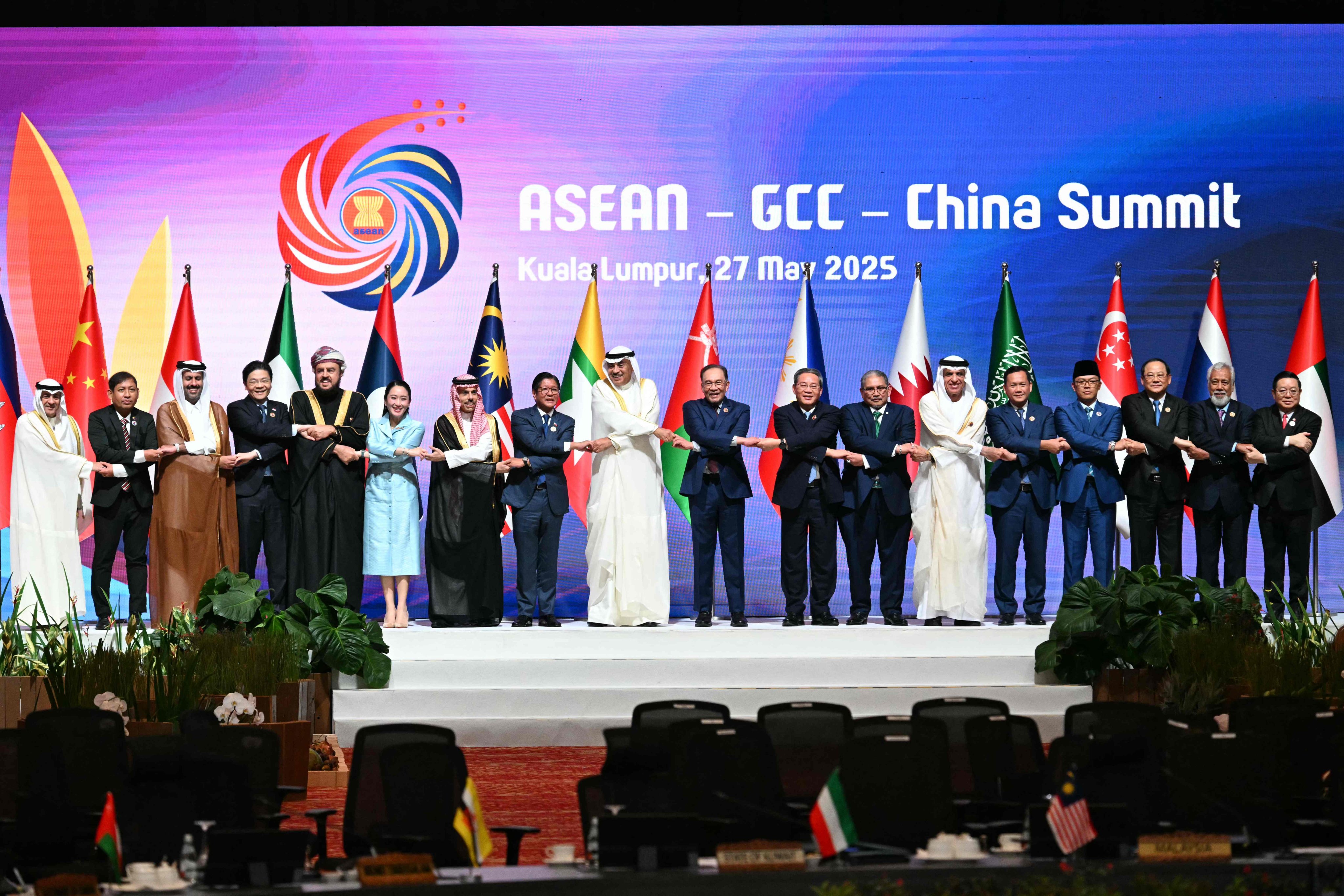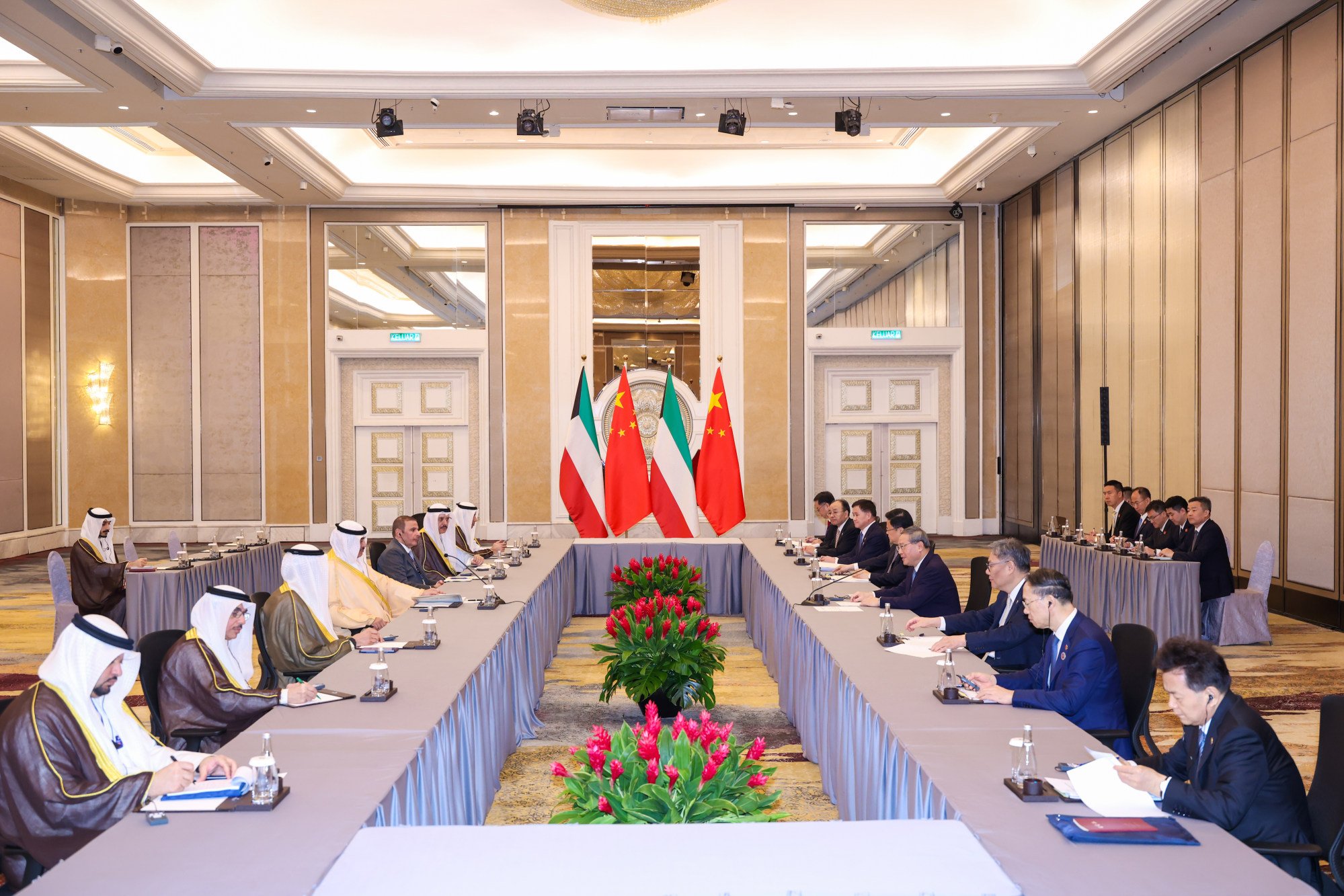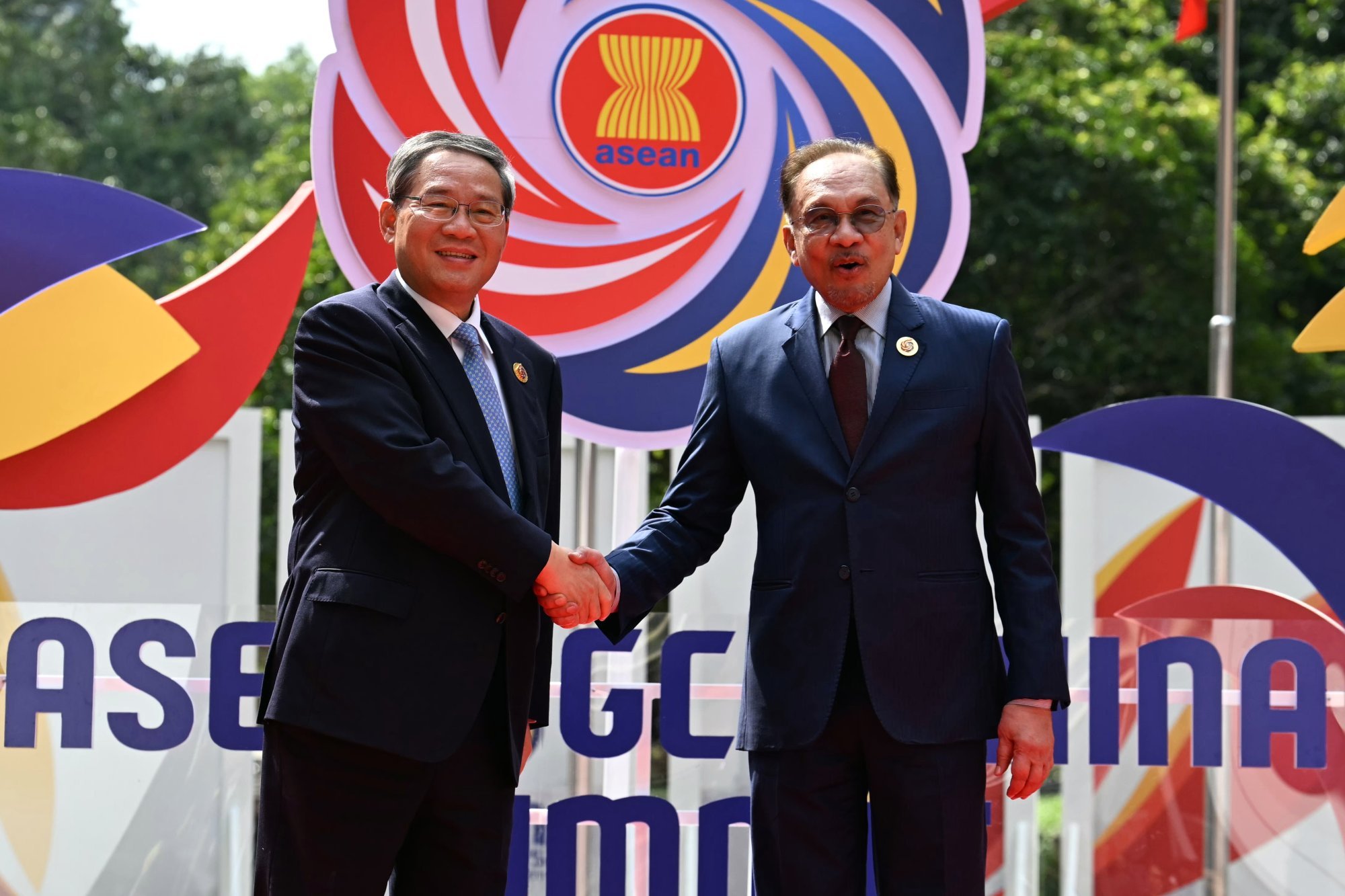Asean aims for more investments from GCC as US tariffs spur diversification
Malaysia Prime Minister Anwar Ibrahim refers to an ‘increasingly complex global landscape’ as an impetus for closer Asean-GCC ties

Southeast Asian economies have signalled their readiness to allow more investments from the Gulf region in sectors such as technology, artificial intelligence and renewable energy, as they look to diversify growth and shield themselves from the impact of US tariffs.
In return, the six-member Gulf Cooperation Council is seeking partners beyond the Middle East to tap its oil wealth as part of its efforts to play a greater role in global growth.
Southeast Asia’s economies have been reeling since April, when US President Donald Trump announced sweeping “reciprocal” tariffs to be imposed on Washington’s global trade partners. With their exports to the world’s largest economy expected to slow, Asean members have been lobbying Washington for relief from tariffs of up to 49 per cent, ahead of an early July deadline.
Malaysia’s Prime Minister Anwar Ibrahim, who is this year’s Asean chair, said on Tuesday that the Asean-GCC Summit came at a crucial time when both regions “navigate an increasingly complex global landscape marked by economic uncertainty and geopolitical challenges”.
The GCC was the Association of Southeast Asian Nations’ seventh-largest trading partner in 2023, with bilateral trade totalling US$130.7 billion, he said.
“A transition in the geopolitical order is under way” with multilateralism “breaking apart at the seams” under rising US protectionism, Anwar warned on Monday.
Sheikh Sabah Al-Khaled Al-Sabah, the Crown Prince of Kuwait, on Tuesday said Asean and the GCC represented a large economic power, forming one of the most important trade and maritime networks that had an impact on global stability and economic growth.

“Geopolitical crises and the Covid-19 pandemic has made us realise the need for cooperation in food security, holistic agriculture and the digital economy,” Sheikh Sabah said, adding that the GCC hoped to jointly develop digital infrastructure with Asean.
The Asean-GCC summit was co-chaired by Anwar and Sheikh Sabah on behalf of Kuwait, current chair of the GCC. Among the other GCC dignitaries at the summit were the Emir of Qatar Sheikh Tamim Hamad Al Thani and Saudi Arabian Foreign Minister Prince Faisal Farhan al Saud.
The GCC’s increasing economic clout was highlighted earlier this month, when Trump announced billions of dollars of investments and purchases pledged by Gulf nations during his tour of the region. Among them were a record-breaking US$96 billion order of 160 Boeing jetliners by Qatar Airways and plans for a US$7 billion data centre complex in the United Arab Emirates – the largest outside the US.
These and other investments by GCC members around the world had made the grouping “an indispensable partner in regional and global development”, including for Asean, said Eric Low, partner at Malaysia-based strategic advisory firm Densui.
On the political front, Anwar underscored Asean’s close ties with the GCC by reiterating the 10-member bloc’s continued support for an immediate ceasefire and resolution to Israel’s war on Gaza.
“Gaza has been a pain in our hearts … we are with you and hoping for a final settlement,” he said.
On Monday, Malaysia signed an agreement with the GCC to start negotiations towards a free-trade agreement with the bloc, with both sides aiming to cut tariffs and non-tariff barriers, deepen economic ties and align regulations.

Trade between the two partners totalled US$22.3 billion in 2024, led by electrical and electronic products, jewellery, petroleum products, palm oil and processed food, according to Malaysia’s trade ministry.
Separately, within Asean, member states on Monday agreed to accelerate efforts to increase intra-regional trade and widen its pool of trade partners in response to the global economic upheaval caused by US tariffs. One such initiative was a new deal signed on the same day for Vietnam to supply Malaysia and Singapore with renewable energy as part of measures to expand the Asean-wide power grid.
Meanwhile, China’s Premier Li Qiang is also in Kuala Lumpur for the inaugural Asean-GCC-China Summit and is scheduled to deliver a speech on Tuesday night. On Monday, he met with Anwar to discuss bilateral and regional trade cooperation in sectors such as the halal industry, transportation, green energy and artificial intelligence.
At the opening of the summit, Li urged the three partners to “build a model of cross-regional openness”, given that they collectively accounted for one quarter of the world’s total population and economic output.
“Fully connecting our markets will unleash enormous development potential and generate even greater scale effects,” he said in his opening remarks.
Anwar is also scheduled to meet with players from English Premier League side Manchester United on the sidelines of the two-day Asean summit. The club will play a an Asean team for a friendly match in Kuala Lumpur on Wednesday.